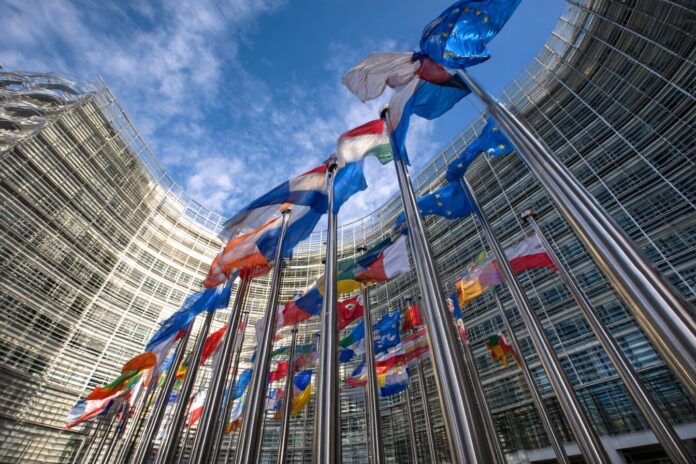The European Union has delivered a powerful message to Big Tech by levying a $3.5 billion fine against Google for abusing its dominance in the digital advertising sector. This decisive action not only challenges Google’s entrenched market position but also signals a transformative moment in the regulatory landscape of technology. Because it represents one of the most significant antitrust measures in recent memory, this ruling is set to reverberate across the global digital market.Most importantly, this fine reiterates the EU’s commitment to enforcing fair competition among digital platforms. As European regulators intensify their scrutiny of dominant market practices, companies like Google have no choice but to reconsider entrenched business models. Furthermore, the regulatory approach is evolving as decisions become more rigorous, as detailed by ABC News and TechCrunch, underscoring a new era for transparency and accountability in digital advertising.
Understanding the Antitrust Fine
The European Commission, which functions as the chief antitrust regulator for the EU, has meticulously investigated Google’s practices over a period exceeding two years. The probe revealed that the tech giant systematically preferred its own advertising services. Because of this self-preferencing, Google has been accused of undermining competitors and skewing the digital ad market in its favor. Therefore, the Commission imposed a €2.95 billion fine—equivalent to $3.5 billion—to penalize these practices and restore balanced market dynamics.Besides that, the decision mandates a series of remedial measures. Google must swiftly eliminate conflicts of interest in its advertising supply chain and reconfigure its ad exchange mechanisms. Most notably, regulators have set a tight deadline of 60 days for these implementations. As Axios reports, failure to comply could lead to even more stringent regulatory penalties, potentially altering the digital advertising landscape for years to come.
What Led to the Fine?
Investigations into Google’s conduct began over two years ago, driven by concerns that the company’s dominant market position was being used to favor its own digital ad services. Because of the extensive evidence gathered, the European Commission concluded that Google deliberately manipulated ad buying and selling tools to suppress competition. Most importantly, these practices not only hinder fair competition but also impact consumer choice in the digital marketplace.Moreover, previous warnings hinted at drastic measures, including potential breakups of Google’s advertising business. Transitioning from theoretical risks to concrete action, the EU’s current stance reflects their heightened readiness to enforce regulatory compliance. As highlighted by TechCrunch, these enforcement actions are part of a broader policy drive aimed at increasing market fairness and consumer protection across the EU.
How Does This Decision Affect Google and the Adtech Market?
This ruling compels Google to re-examine and re-engineer its adtech practices. For instance, the company is now tasked with overhauling its ad-buying platforms to remove built-in competitive advantages. Most importantly, this directive is not only punitive but also preventive, intended to benefit competitors by creating a more level playing field. Therefore, the industry will witness a push towards innovation and fair competition.Furthermore, these changes directly impact the entire digital advertising ecosystem. Smaller competitors could gain increased market access, driving overall improvements in service quality and pricing transparency. Besides that, European businesses may soon experience a more diverse ad technology market that better caters to their evolving needs. As noted on Adweek, such measures could stimulate significant advancements in advertising technology within the region.
Google’s Response and Potential Appeal
Google has responded with defiance to the ruling, describing the decision as both excessive and flawed. In its official statements, the company emphasized that its comprehensive suite of ad services meets the market’s demands and continues to provide value to advertisers and publishers alike. Because Google believes its practices are both competitive and fair, the company intends to appeal against the decision.Additionally, Google warned that implementing the mandated changes could disrupt digital advertising operations across Europe. Most importantly, the company highlighted potential negative financial implications for many European businesses that rely on its technology platforms. Therefore, the unfolding legal battle is expected to add another layer of complexity to the already contentious debate over Big Tech’s influence in international markets.
Broader Industry and Regulatory Context
The record fine against Google emerges amid a wave of regulatory pressures targeting major technology players. Because regulators continue to scrutinize tech giants from multiple angles—ranging from antitrust issues to privacy concerns—such decisions represent a significant shift in the enforcement landscape. Most importantly, this approach underscores a growing global trend toward stricter oversight of digital businesses.Moreover, the EU’s regulatory actions extend beyond antitrust measures. For example, Meta’s recent decision to halt political advertising sales in the region, as reported by TechCrunch, illustrates the breadth of enforcement priorities. Therefore, the cumulative effect of these regulatory initiatives is to create an environment where accountability and transparency are paramount, compelling all tech companies to adapt their global strategies to meet diverse regional expectations.
What’s Next for Digital Advertising?
The future of digital advertising now faces a critical juncture. Because regulatory bodies in Europe are keen to ensure fair competitive practices, any change in Google’s approach could lead to a more diverse and competitive adtech market. Most importantly, this new dynamic promises to spur innovation while also safeguarding consumer interests.Furthermore, market analysts predict that Google’s enforced changes might extend beyond the EU, influencing digital advertising regulations globally. Transitioning towards a more open and competitive market, tech companies across the world may adopt similar measures to maintain consumer trust. Besides that, the reformed digital landscape will likely witness robust debates and evolving legal frameworks, making it essential for companies to stay agile and compliant with regional regulations.In conclusion, the digital advertising industry is on the brink of significant transformation. As the EU’s actions drive the market towards greater accountability, all stakeholders—from publishers to advertisers—will be watching closely. Therefore, Google’s upcoming moves and potential appeals will play a pivotal role in shaping the future of adtech, both in Europe and globally.
References
ABC News
TechCrunch EU Fine Details
TechCrunch on Meta Political Ads
Axios on EU Antitrust Actions
Adweek



